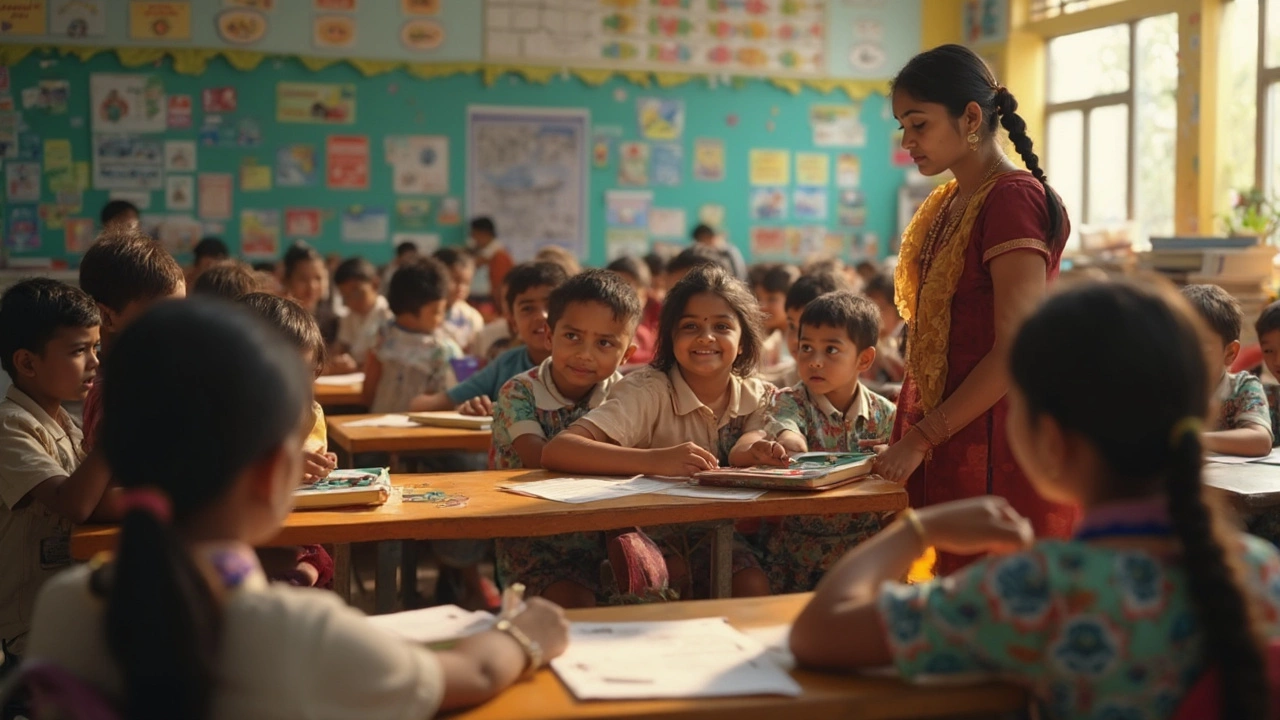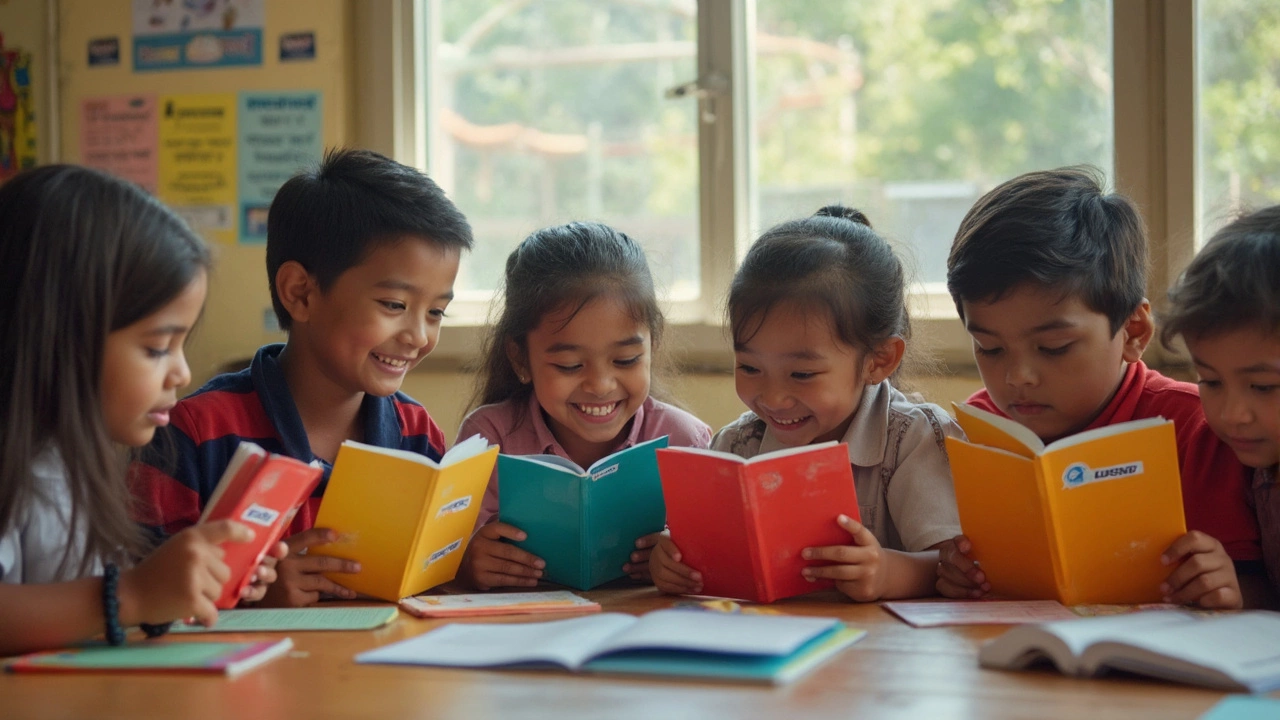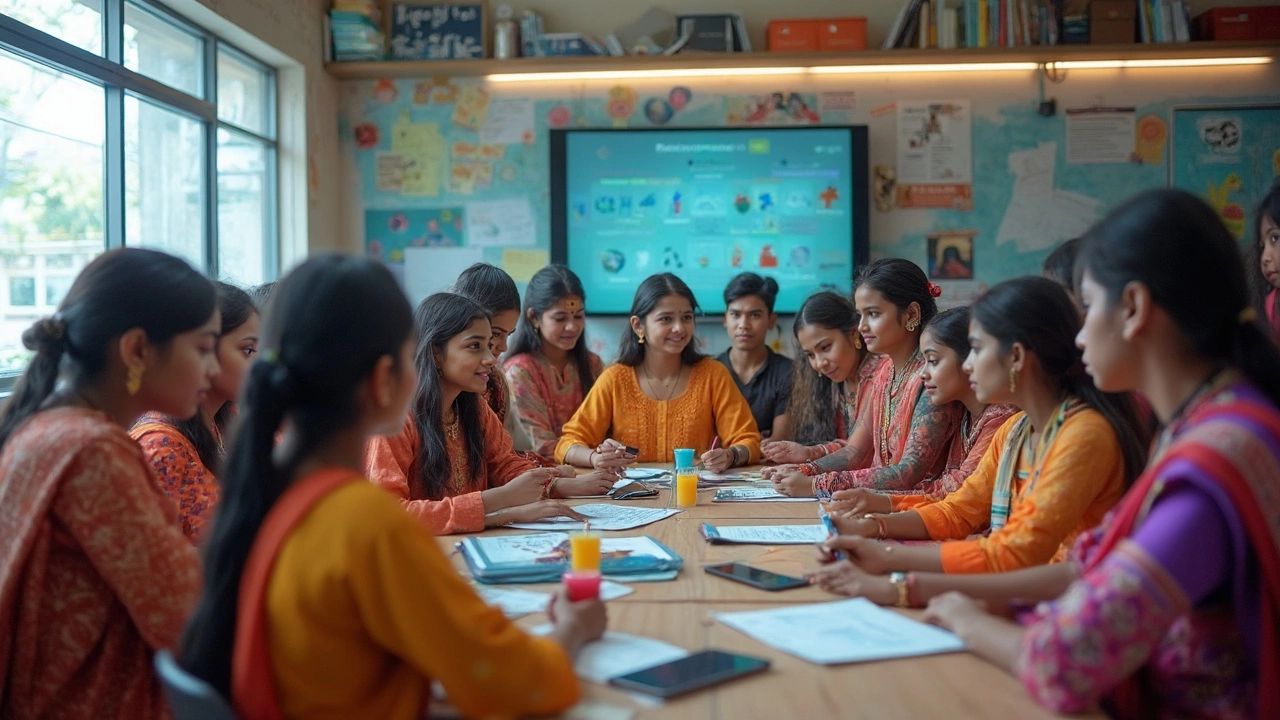So, you're trying to figure out which educational board could be the best for you or your kids in India, right? It's a big decision with many elements to weigh. Among the myriad of choices, the CBSE board often finds itself in the spotlight, but what makes it so special?
First off, CBSE, which stands for the Central Board of Secondary Education, is particularly popular because of its standardized approach across the country. It's recognized for its structured curriculum, focusing on comprehensive education that balances academic and practical learning.
One big perk of CBSE? Consider its recognition. It's not just about national credibility. Many CBSE students pursue successful education paths abroad, thanks to its acknowledgment by global universities.
- Understanding the Indian Education Landscape
- Why CBSE Stands Out
- CBSE Curriculum Highlights
- Tips for Choosing the Right Board
- Challenges with the CBSE Board
Understanding the Indian Education Landscape
The Indian education system is vast and varied, and knowing where to start can definitely feel like a task. There are several boards to choose from, each with its own way of doing things. This variety stems from India's diverse culture and history, demanding different educational paths for its vast population.
The main boards of education in India include the CBSE, the Indian Certificate of Secondary Education (ICSE), and various state boards. Each caters to different educational philosophies and objectives. So, if you're wondering which one might suit you or your child, you're not alone!
The Appeal of CBSE
Out of all the options, the CBSE board is quite popular across the board. It commands attention with its comprehensive, yet straightforward approach to education. The CBSE syllabus aligns closely with many competitive exams like the IIT-JEE and the NEET, making it a go-to choice for students aiming for those fields.
What’s more, the CBSE's recognition is impressive. Not only is it known throughout the country, but it also carries weight internationally. A lot of global universities regard the CBSE curriculum highly, giving students a better shot at furthering their education overseas.
Other Popular Boards
Meanwhile, the ICSE board is known for its focus on the arts and literature, encouraging analytical skills and creative learning. It’s a bit different from the CBSE syllabus but favored by those looking for a more in-depth study of languages and humanities.
State boards, on the other hand, are tailored more towards regional languages and local culture, providing flexibility in educational policy to cater to regional needs. They're often preferred by students who wish to stay within specific states for higher education.
In simple words, each board has something unique to offer. It's all about what aligns best with the student's future goals and learning style!
| Board | Focus Area |
|---|---|
| CBSE | National recognition; science and math excellence |
| ICSE | Arts, literature, comprehensive learning |
| State Boards | Regional language and culture |
Why CBSE Stands Out
The CBSE board consistently emerges as a preferred choice for parents and students across India. But what gives it an edge over other boards? Let's break it down.
Uniformity Across the Nation
One of the biggest strengths of the CBSE board is its uniform curriculum implemented across the country. Whether you're in New Delhi or Chennai, you can expect the same syllabus, which means fewer hurdles for students who have to relocate. This can be a big plus for families with jobs that involve transfers.
Student-Centric Approach
Unlike some other boards that focus heavily on rote learning, CBSE emphasizes a more student-friendly approach with continuous and comprehensive evaluation. This method encourages not just bookish knowledge but a more rounded development with equal focus on mental and physical growth.
Nationwide Recognition
Being a centrally managed board, CBSE holds significant credibility, which translates into easier college admissions, both in India and abroad. It's well-accepted by universities for professional courses like engineering and medicine, giving CBSE students an edge in competitive exams like JEE and NEET.
Strong Focus on Additional Skillsets
CBSE isn't just about academics. It includes life skills and physical education in its curriculum. Activities such as sports, yoga, and arts are integrated, helping students gain important life skills beyond textbook knowledge.
Quality of Textbooks
CBSE textbooks, especially those by NCERT, are revered for their quality and content. They focus on clarity of concepts, which is not only helpful for exams but also for competitive tests like UPSC.
| Feature | CBSE Strength |
|---|---|
| Uniformity | Standard curriculum across India |
| Recognition | Accepted by global universities |
| Approach | Student-centric with holistic development |
When considering an educational board, understanding these facets of CBSE can make a substantial difference in making an informed choice for the future.

CBSE Curriculum Highlights
The CBSE curriculum is known for its vibrant blend of theory and skill-building. If you're curious about what sets it apart, let's break it down.
Subject Range and Flexibility
CBSE offers a wide range of subjects, making it easier for students to pick what aligns best with their interests and future goals. This flexibility is one reason many opt for it. There are not just traditional subjects but also vocational courses that help in skill development, a crucial aspect in today’s job market.
Focus on Standardized Exams
The board conducts NEET and JEE, making it easier for students aiming to pursue engineering and medical courses. Having the curriculum aligned with these exams helps students prepare more effectively without needing extra coaching.
Continuous and Comprehensive Evaluation (CCE)
Gone are the days of being judged by a single end-of-year exam. CBSE introduced CCE that evaluates students continuously throughout the year. This holistic approach lowers stress and boosts learning through regular assessments.
Practical Learning Approach
While many boards focus mainly on rote learning, CBSE encourages textbooks that include hands-on activities. This way, students grasp concepts more effectively, making them critical thinkers by understanding practical applications.
Global Recognition
Graduating from a CBSE school is beneficial for international studies. The board’s syllabus, considered equivalent to many international standards, opens opportunities for students across the globe.
| Subject | Importance |
|---|---|
| Mathematics | Develops analytical skills crucial for science and technology fields. |
| Science | Prepares students for competitive exams and deeper scientific studies. |
| Languages | Improves communication skills and cultural understanding. |
Tips for Choosing the Right Board
When it comes to picking the right education board in India, it can feel like sorting through a jungle of options. Here are some practical tips that can help you make an informed choice.
Consider Your Child's Learning Style
Every child learns differently. Some thrive under structured environments, while others flourish with more creative, exploratory approaches. Understanding if your child would benefit from the structured and consistent approach of the CBSE can narrow down your choices.
Think About Long-Term Goals
Do you have plans for your child to study abroad or follow a particular career path? The CBSE syllabus is recognized internationally, which can be a boon if higher studies overseas are on your radar.
Check the Curriculum Fit
The curriculum is king when choosing a board. Look at subjects offered and compare with your child's interests. Under CBSE, there is an emphasis on Maths and Science, while also offering humanities and arts. This balance can cater well to children with varied interests.
Assess School Infrastructure
A good infrastructure can support effective learning. Make sure the schools you're considering have the facilities to pursue CBSE's emphasis on both academics and extracurriculars.
"Choosing the right board not only shapes academic outcomes but also helps in personality development," says Dr. Aarti Kapoor, an educational consultant based in New Delhi.
Look at Past Results and Accreditation
Previous performance tells you a lot about how well a school implements the CBSE curriculum. Schools with consistent results often show a clear understanding and ideology aligned with the board's requirements.
Discuss with Educators and Other Parents
Don't underestimate the power of a good chat. Talk to teachers, parents, and even students to get their perspective. They can offer insights that you might not find in brochures or online surveys.
Weighing these factors can help you choose the right board, making sure your child's educational journey is aligned with their style and your aspirations.

Challenges with the CBSE Board
Navigating the CBSE system isn't always a walk in the park. There are a few bumps along the way that parents and students should be aware of.
A One Size Fits All Curriculum
One of the main critiques is its 'one-size-fits-all' curriculum approach. While the standardization is great for consistency, it can sometimes mean that individual learning styles and paces are overlooked. Every kid learns differently, and the rigidity of the CBSE syllabus might not appeal to all.
Focus on Rote Learning
The emphasis on theoretical knowledge and exams can lead to a culture of memorization. This leaves less room for creativity and critical thinking. It's often joked that many students remember formulas and dates just long enough to ace the exam, only to forget them soon after.
Limited Regional Content
For a country as diverse as India, the predominantly English-medium curriculum can be a downside for students who are more comfortable in regional languages. This may create a disconnect for students from non-English speaking backgrounds.
Pressure to Perform
The board exams can be nerve-wracking. The pressure to excel in CBSE board exams is immense, sometimes leading to high stress and burnout among students. The system often values marks over understanding, which can be stressful.
Overall, while CBSE offers a robust framework for education, it's crucial to consider whether its approach aligns with the student's personal learning needs and future education plans. What's key is finding a balance that works best for you or your child's educational journey.



